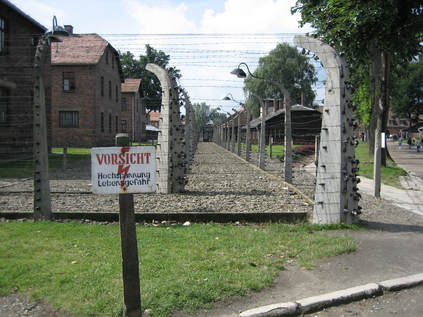 The gates of Auschwitz
The gates of Auschwitz As summer winds down America’s thoughts turn to football. Thanks be to God at least we can all agree on the basics of football! And one of those basics is this: the best defense is a good offense. Our Divine Lord says this, too: “You are Peter, and upon this Rock I will build my Church, and the gates of the netherworld shall not prevail against it.” We can read Christ’s words in two ways. The Church is a fortress whose gates will never be stormed by hell, but the Church is also a battering ram whose force the gates of hell cannot withstand. Bishop Robert Barron points out this second interpretation in his Magnificat magazine reflection for today, and we will consider both ways of reading today’s Gospel.
A Good Defense
First, the Church is a stronghold of truth and goodness. Christ built her as a safe refuge for his sheep, for He himself is the gate. Over the centuries, Catholic churches have served as sanctuaries for those fleeing persecution. This week, for example, 10,000 people fleeing South Sudan’s vicious civil war have sought protection inside the Catholic cathedral in Wau, South Sudan’s second largest city. The Church provides safe haven for those seeking truth, goodness, and beauty. Here on noisy Geary Boulevard, people step inside our parish church day and night to find peaceful refuge from the city streets. The Catholic Church is peaceful and beautiful, however, not just as a kind of religious Disneyland, but because she teaches eternal truths. She teaches these Gospel truths in her doctrines and sermons, but also in her architecture, her painting and music, and all her arts. In our day, irrational ideas about sexuality and marriage, so-called “gender theory,” confuse and harm many. In this confusion, the Church defends the dignity of the human person, as she has from the Roman Empire to the Soviet Empire. Is the Church perfect? Not in her human dimensions—weak or confused leaders often make mistakes and even commit crimes. But in her divine mission of providing truth and beauty to the human race, the Lord who established her keeps her from essential error.
A Good Offence
The Church is also an effective offense against error and injustice. She doesn’t only hunker down behind defensive walls but she also sallies forth bearing the banner of truth, goodness, and beauty. When Jesus said that “the gates of hell shall not prevail against” the Church, he is also saying that the Church herself is the “aggressor.” The enemy cannot prevail against our attack. We storm the gates of darkness, we rush the strongholds of injustice and error, and we break into enemy camps to free those in captivity. The Church frees those in bondage to depression, to alcohol and drugs, to pornography —in bondage to error, the great error of pretending there is no God. Loneliness and despair, born of atheism, is killing so many today. Did you know that suicide is now the second leading cause of death for teens and young adults in our country? A few years ago a young man threw himself off the Golden Gate Bridge. Police found this note back in his apartment: “I’m going to walk to the bridge. If one person smiles at me on the way, I will not jump.” If God does not exist, there is no reason to smile. There is no reason itself, just irrational human error. The Church launches a frontal attack on the dark fortress of atheism, on a rescue mission to free those in captivity. Jesus assures us that the gates of hell cannot prevail against her.
Fr. Kolbe Breeches the Gates
The Church must provide defensive measures, but the Church must also go on the offensive, when lives are in danger. We receive truth and beauty here at Mass, but we must go then into the streets to bring those saving truths to those in bondage. That’s why a small group, that should be larger, attends the 9:30 Mass every other week, but then goes out into the City, on the offensive, if you will. Our St. Paul Street Evangelization brings Christ to the Clement Street Farmer’s Market with sweet smiles and beautiful rosaries and kind words. That is the kind of winning offensive we launch, with patience and charity and truth. I finish with the tale of St. Maximilian Kolbe, a Franciscan friar who died in Auschwitz in 1941, whose feast we celebrated two weeks ago. He had established the largest friary in the world, over 700 brothers, just outside of Warsaw, a sanctuary in the midst of societal collapse (the Nazis had already invaded Poland). The Gestapo arrested him in early 1941, sending him to perhaps the greatest fortress of darkness in history, Auschwitz concentration camp. One morning the camp commander, Rudolf Hoess, decided to choose ten prisoners for starvation. The last man he picked wept for his wife and children, and Fr. Kolbe calmly walked toward the Nazi commander. “I will take that man’s place,” he said. “Who are you?” the commander asked incredulously. “I am a Catholic priest,” Kolbe replied. Hoess stepped back in fear, but accepted the offer. Kolbe died for that man, and for all men. He had breeched the gates of death by letting Our Lady lead him into the enemy camp itself. By dying for another man, he freed the prisoners of Auschwitz. A survivor said word spread like wildfire through the camp, giving men hope and a reason to live. Kolbe loved Our Lady above all. “Immaculate Mary has sent us into this camp for a great purpose,” he told his brothers. Let Fr. Kolbe inspire us to do the same. The gates of hell cannot prevail against truth and love.
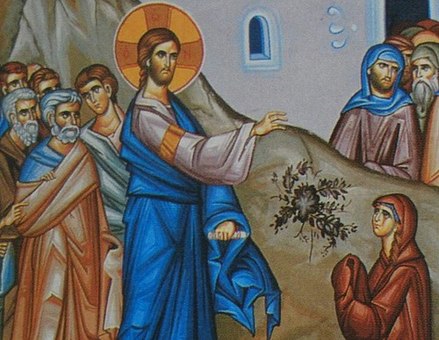
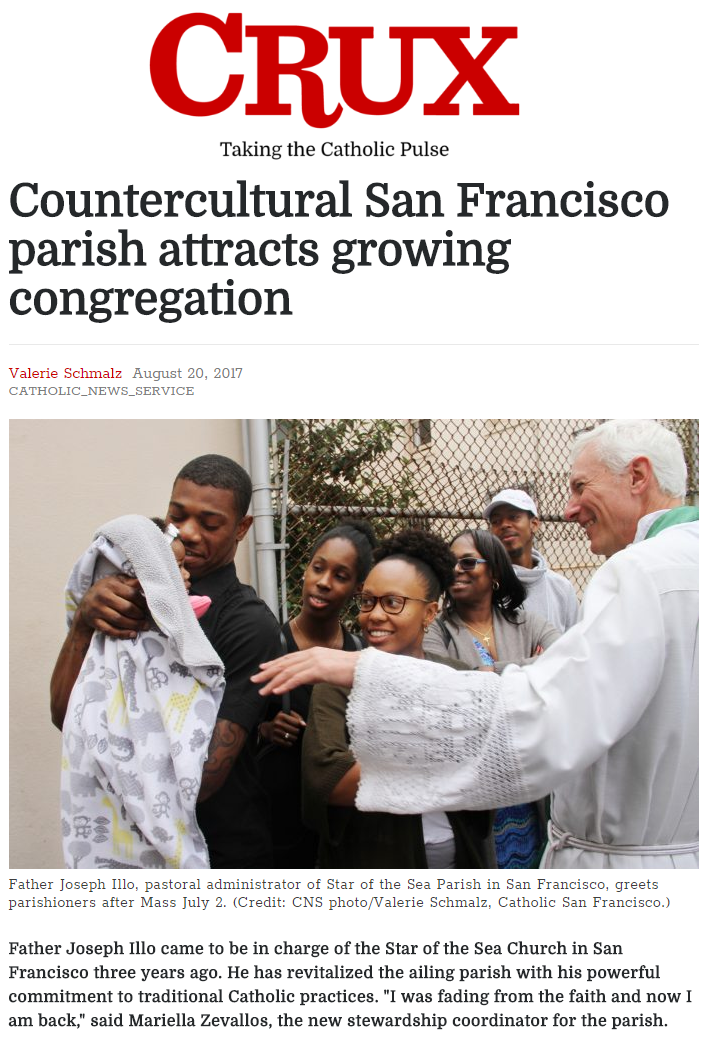
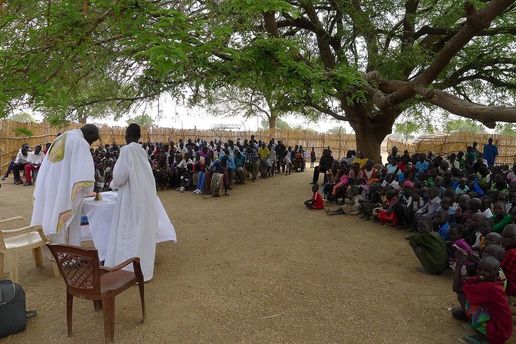
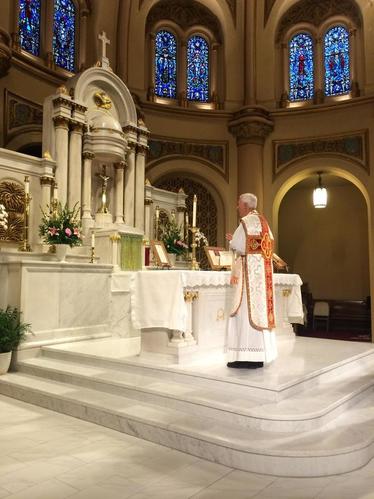


 RSS Feed
RSS Feed